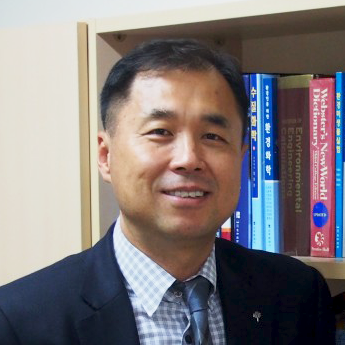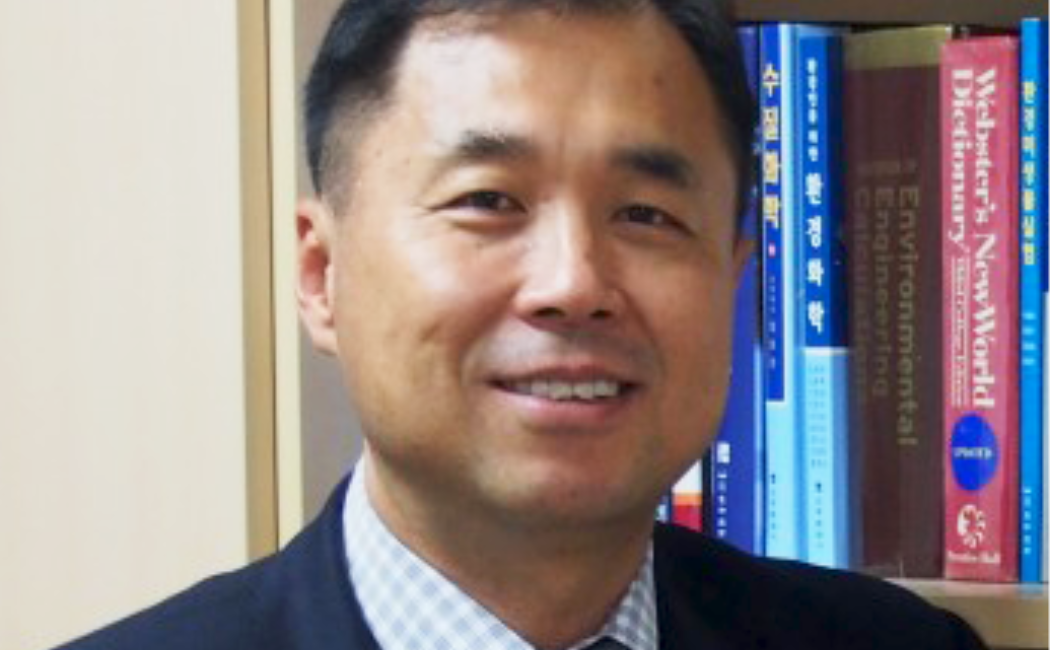EnSE Seminar Series
Sunday, 17 February 2019, 4:00 pm – 5:00 pm
Auditorium between Bldg 4&5, Level 0, Room 0215

Dr. Am Jang
Associate Professor, Graduate School of Water Resources (GSWR), Sungkyunkwan University (SKKU)
Forward Osmosis-Reverse Osmosis Hybrid System and Environmental Heavy Metal Sensor
Abstract
Forward osmosis (FO) process uses the natural chemical potential difference between a highly saline draw solution (DS) and a feed solution (FS) to induce natural osmosis through a semipermeable membrane. An FO process may be viewed as a pretreatment for downstream unit processes, especially for water with high scaling or fouling propensity. During this process the feed is concentrated while the draw solution becomes dilute. Energy limitation of reverse osmosis (RO) process can be mitigated by combining it with FO process because RO feed water can be diluted by FO process (It is called as FO-RO hybrid system). For wastewater reuse, FO process can use wastewater or effluents as the FS and seawater as the DS. Further water resources can be recovered from the wastewater and diluted seawater can be used as the FS to RO. Synergistically coupling FO with RO produces an exceptionally robust, multi-barrier system for wastewater reuse and desalination.
A significant advantage of Micro Electro Mechanical Systems (MEMS) fabrication techniques is the ability to make possible mechanical parts of micron size that can use very small volumes. Moreover, by means of integrating with electronics, valves, and pumps, one can fully automate the sample preparation. In this study, we integrate MEMS technology with the square-wave anodic stripping voltammetry sensing method to measure heavy metals in a small volume of sample. Miniaturized environmental lab chip sensors with mercury-free microelectrodes could receive considerable attention due to their numerous benefits such as greatly reducing the sensing cost, making the entire sensing system portable, and ease of use. Accordingly quite reliable on site
measurement of heavy metals penetrating into the environment is possible, which is useful for restricting environmental damages. So, a portable micro-fabricated chip sensor system is well suited for sensing, monitoring and detection of diverse range of heavy metals and it can be expected that its importance will grow, especially in environmental, industrial and clinical medical diagnostics area.
Bio
Dr. Am Jang is an associate professor in the Graduate School of Water Resources (GSWR) at Sungkyunkwan University (SKKU). He received his Ph.D. in Environmental Science and Technology from the Gwangju Institute Science and Technology (GIST), South Korea in 2002. Before he joined the faculty of the GSWR at the SKKU in 2011, he worked at the University of Cincinnati in the USA as a postdoctoral fellow (2003-2006) and an assistant professor for research (2006-2010).
Currently, he has participated in desalination researches, including forward osmosis/reverse osmosis hybrid system. He is the project leader of the research project entitled by “The study on FO-RO mechanism investigation & advanced operation technology for water quality control”, which is financially supported by Ministry of Land, Infrastructure and Transport of Korean government. He has achieved a record of outstanding achievements over 120 publications and 30 patents.
He has been a director of Korea Society of Water and Wastewater Association (since 2014) and an academic director of Membrane Society of Korea (since 2015). In addition, he has been a manager and vice president of the Korea Society of Environmental Engineers (KSEE) since 2014.



